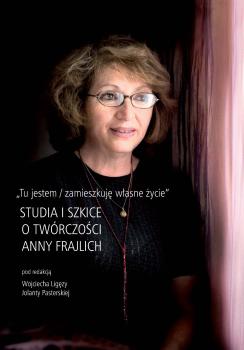Poezja Anny Frajlich wobec dziedzictwa kulturowego judaizmu : O Wierszach izraelskich .......... 167
Synopsis
A PORTRAIT OF THE EXILED – POLISH AND JEWISH WOMEN IN ANNA FRAJLICH’S POETRY
The article reveals Anna Frajlich’s autobiographical work as a metaphorical discourse on the situation of exile. It is intended to characterize a woman of Jewish origin exiled from Poland after the events of March ‘68, i.e. the person speaking in a poem. Her Polish-Jewish identity was redefined as Polish-Jewish-American, owing to the experience of expulsion. It is a study of feelings associated with a difficult period of emigration, adaptation and acceptance of a new home. As a Pole, she misses the lost country, struggles with the pain of loss and the inability to return, and remembers the old homeland as a place of anti-Semitic persecution. In this discourse of exile poetry, the parents of émigrés, who shared the experience of a forced exodus, were also involved in saving their lives. The March ‘68 migration is presented as a border experiment, which entered into the paradigm of other exiles of the Chosen People since the destruction of the First Temple of Jerusalem.





